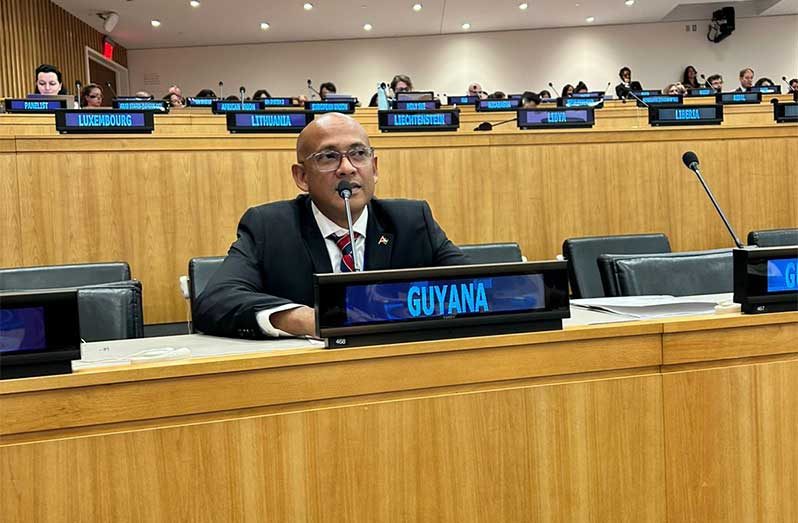-Carpen tells high-level meeting
GUYANA’S leading cardiologist and Presidential Adviser on Science and Healthcare Modernisation, Dr Mahendra Carpen, has told the international community that the country is setting an example of how political commitment backed by resources can reshape health outcomes.
Dr. Carpen was at the time speaking at a high-level meeting on the Prevention of Noncommunicable Diseases (NCDs) and the Promotion of Mental Health and Wellbeing during the United Nations General Assembly (UNGA).
He described the NCDs and mental health conditions as among the greatest health and developmental challenges of our time and added that NCDs claim 41 million lives annually while “mental health conditions remain a leading cause of disability worldwide.”
Further highlighting the disproportionate impact on developing nations, he stated, “The burden falls heaviest on low and middle-income countries where health systems are often least prepared to respond.”
To this end, Dr Carpen underscored Guyana’s ongoing effort to change this and noted that the country is demonstrating what can be done when investments match political will.
“In Guyana, we are demonstrating what is possible when political will is matched by investment,” he stated.
He pointed to major achievements, including the expansion of primary healthcare, construction of new facilities, growth of the health workforce, and the introduction of telemedicine to serve remote communities.
Further, he noted that through the Pan American Health Organisation (PAHO) Hearts initiative, Guyana is standardising hypertension and diabetes care, reducing the risk of heart disease and stroke.
Additionally, cancer screening programmes for breast, cervical and prostate cancers are also reaching more people earlier, while mental health services are being decentralised in line with a new mental health strategy.
As such, over the past five years, he disclosed that government’s expenditure on health has risen from $35 billion to $143 billion, an increase of some 300 per cent.
He added, “It highlights how strategic and consistent investment can build resilient, people-centred health systems that can tackle NCDs.”




.jpg)











